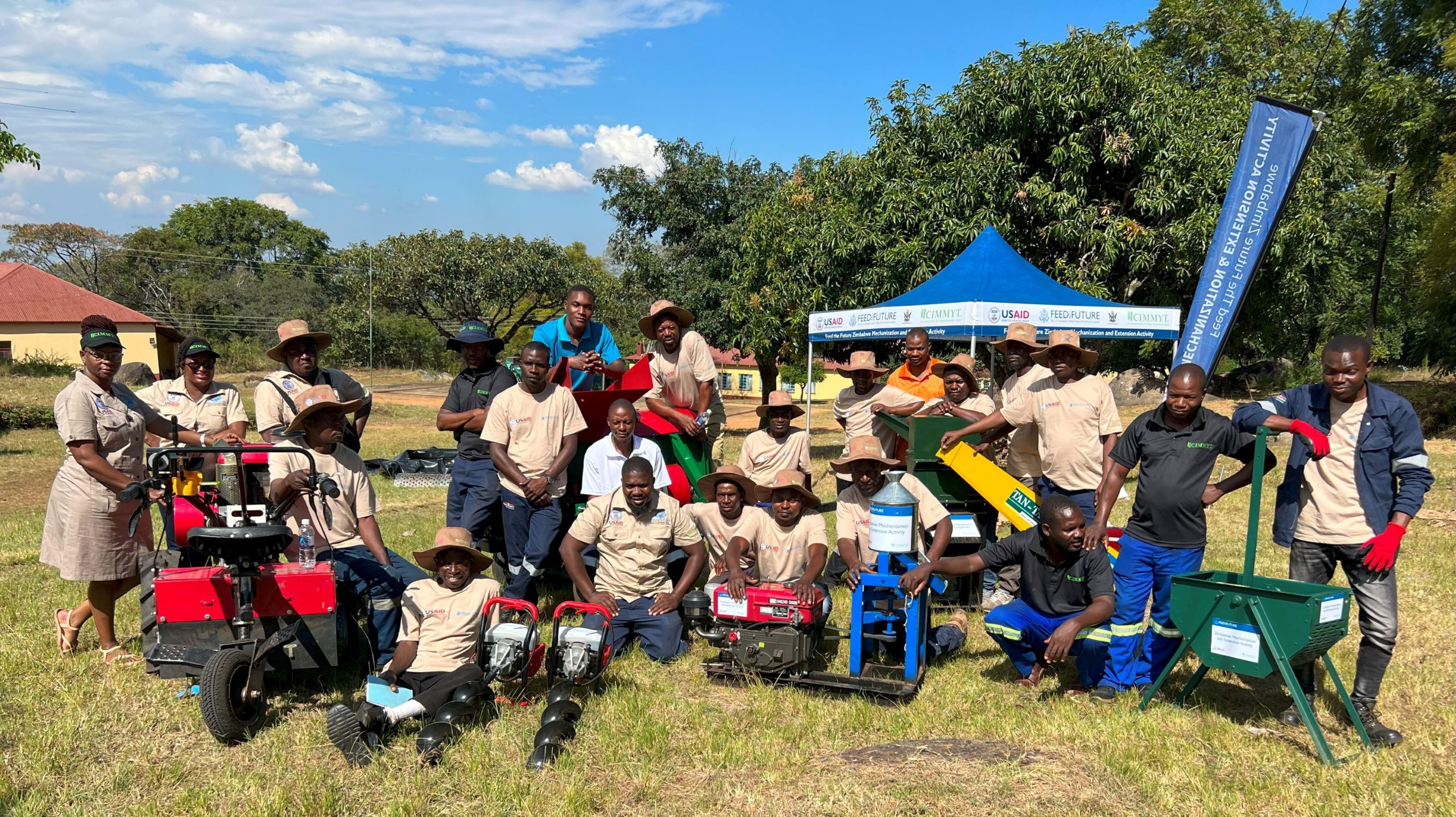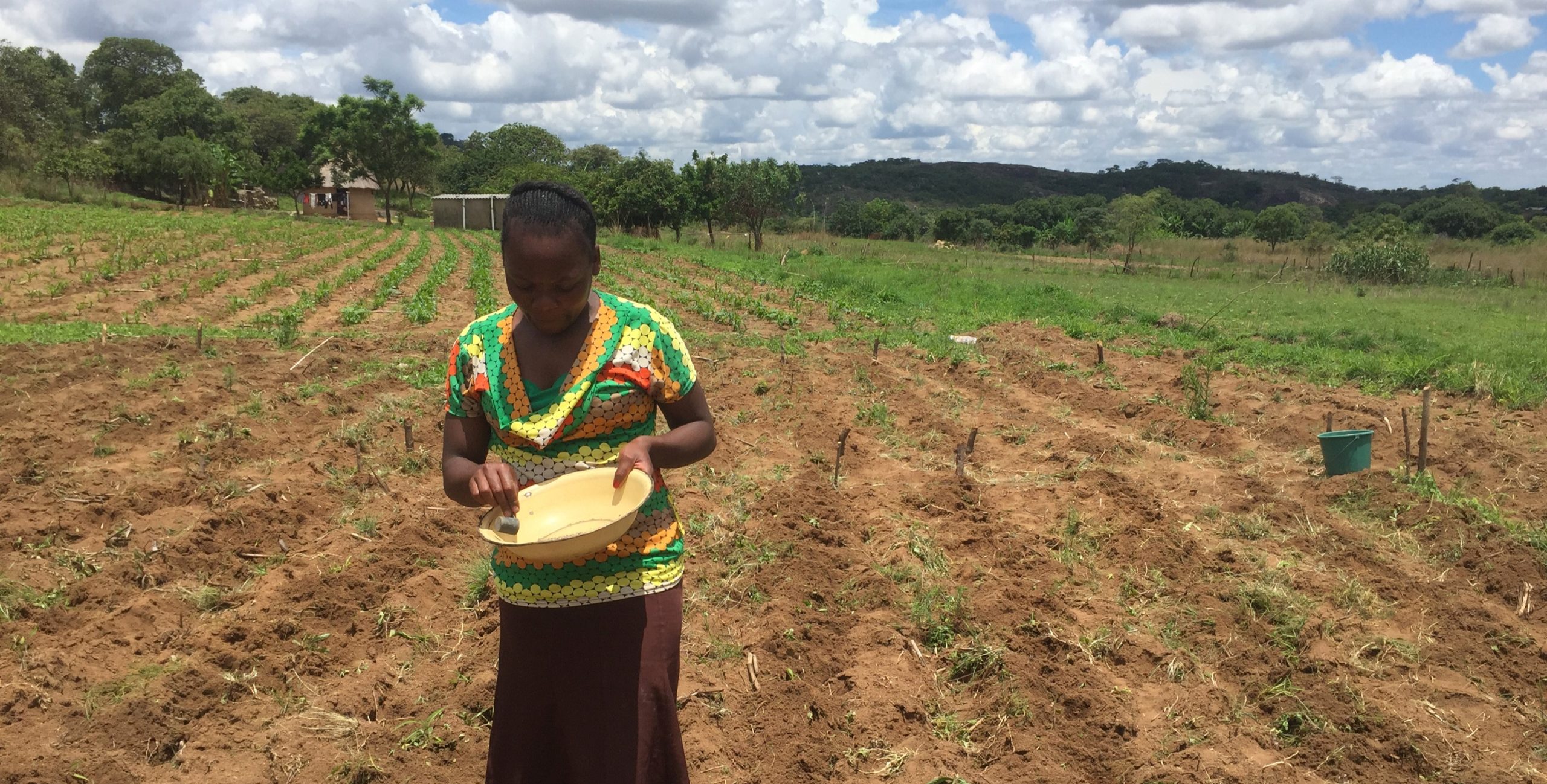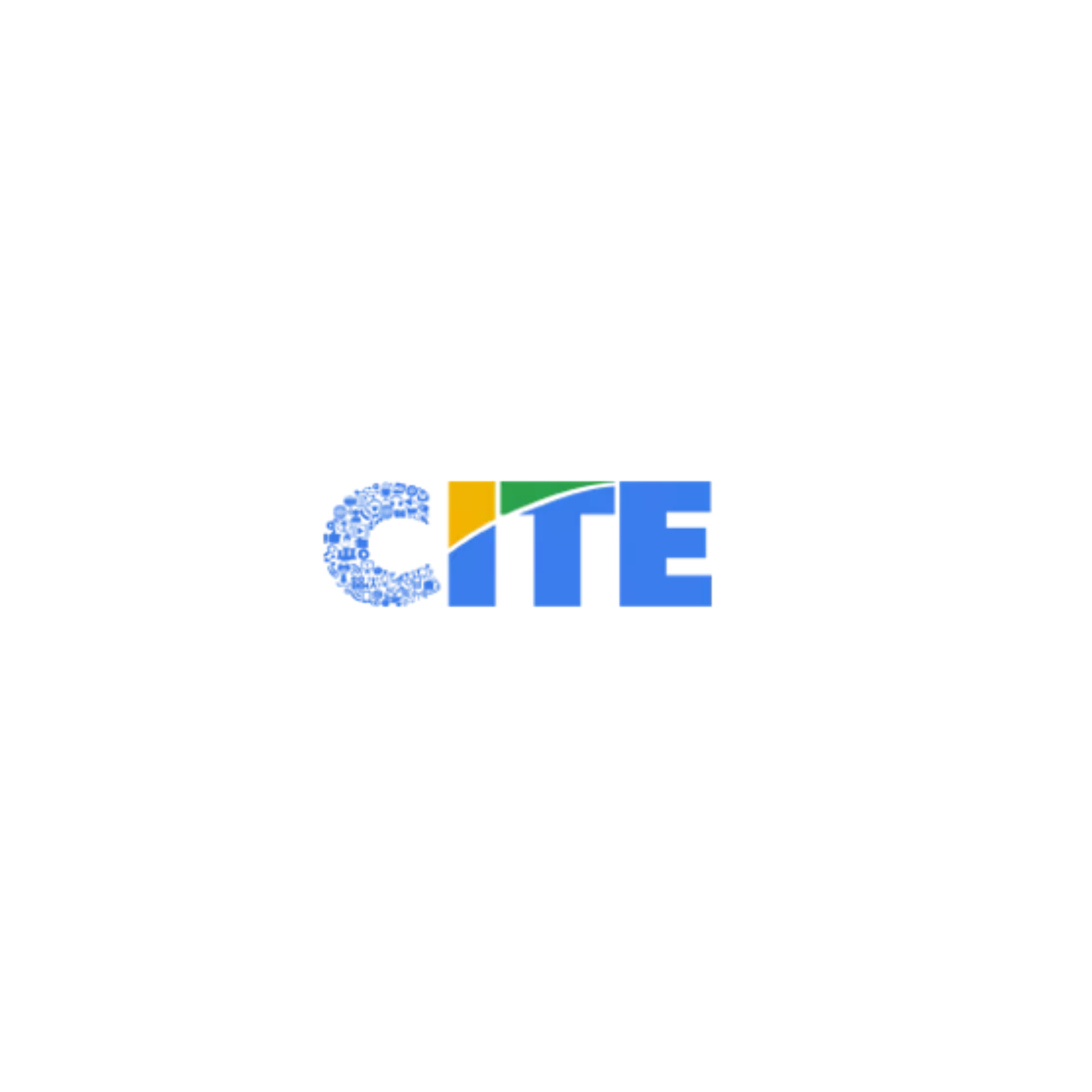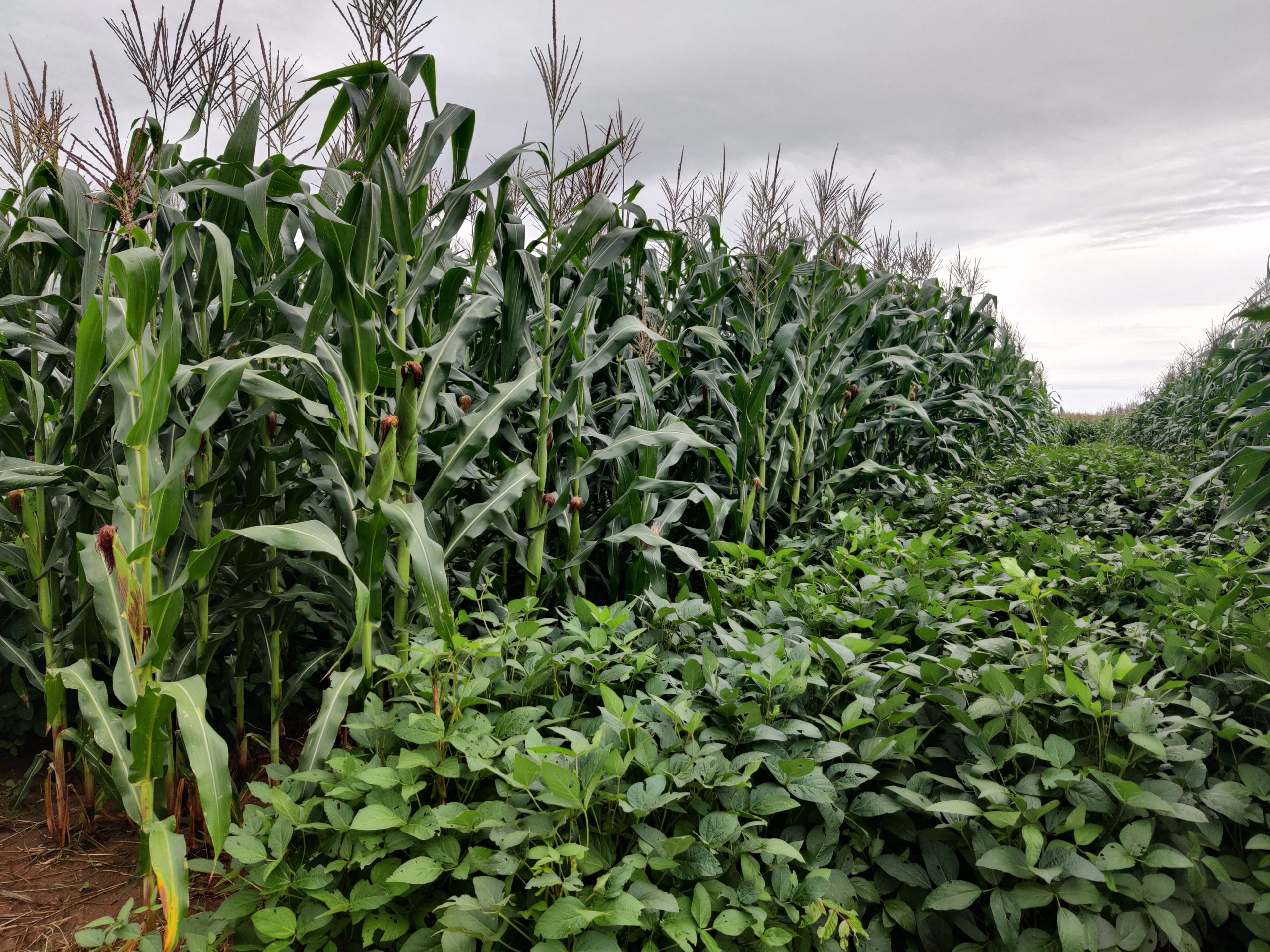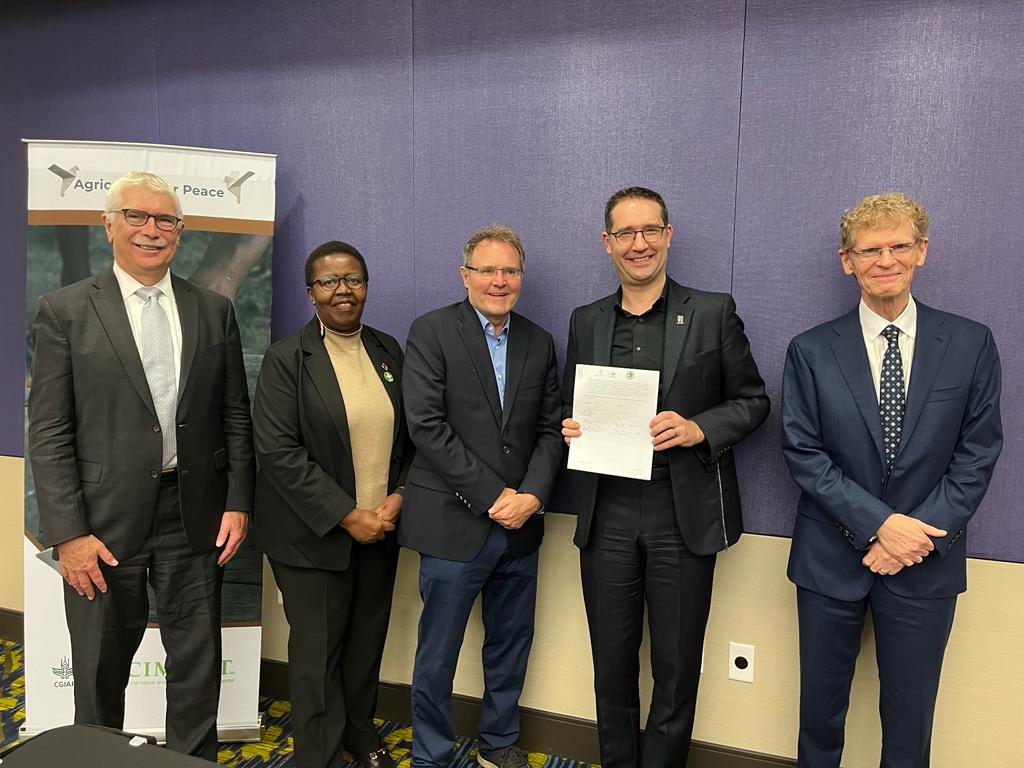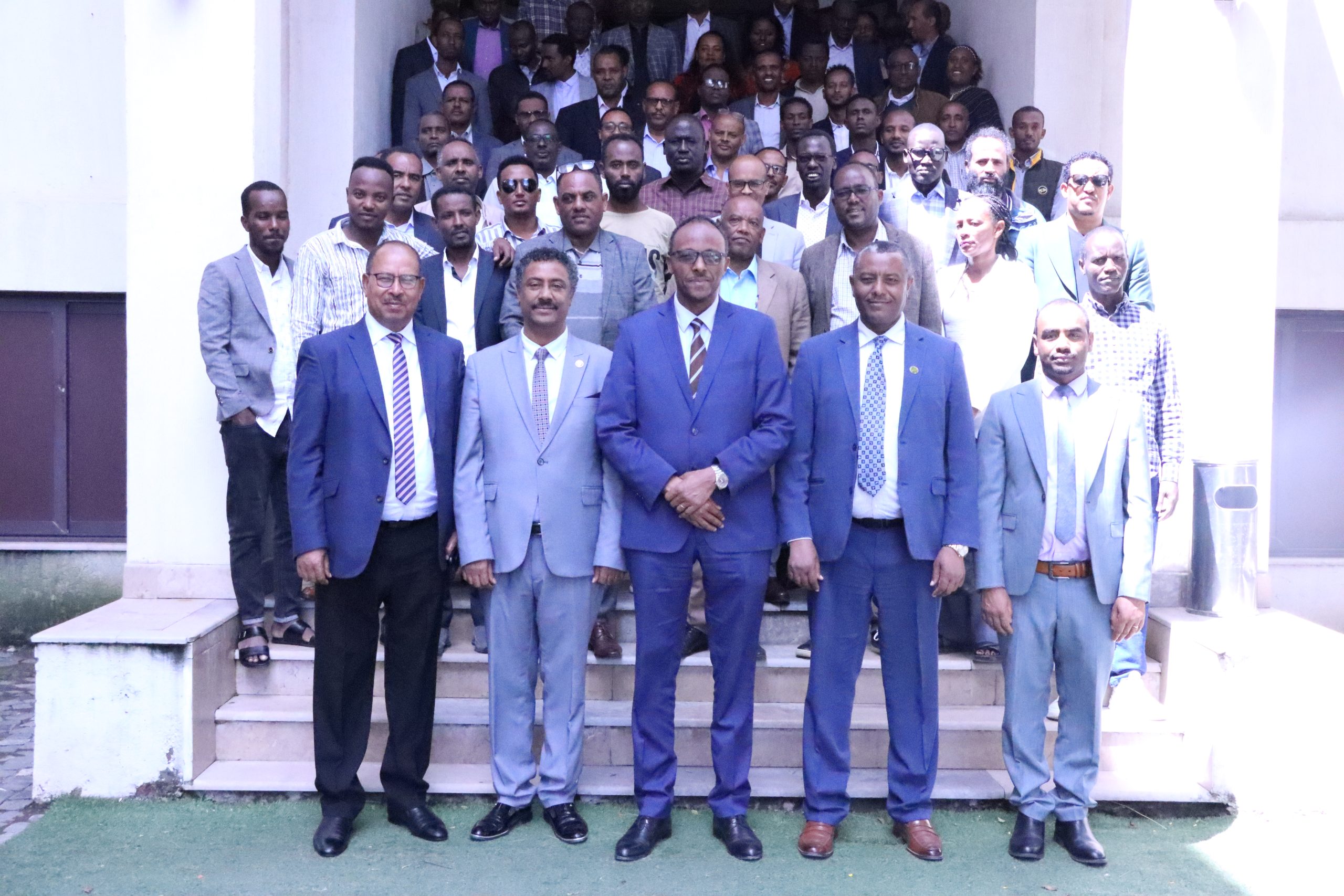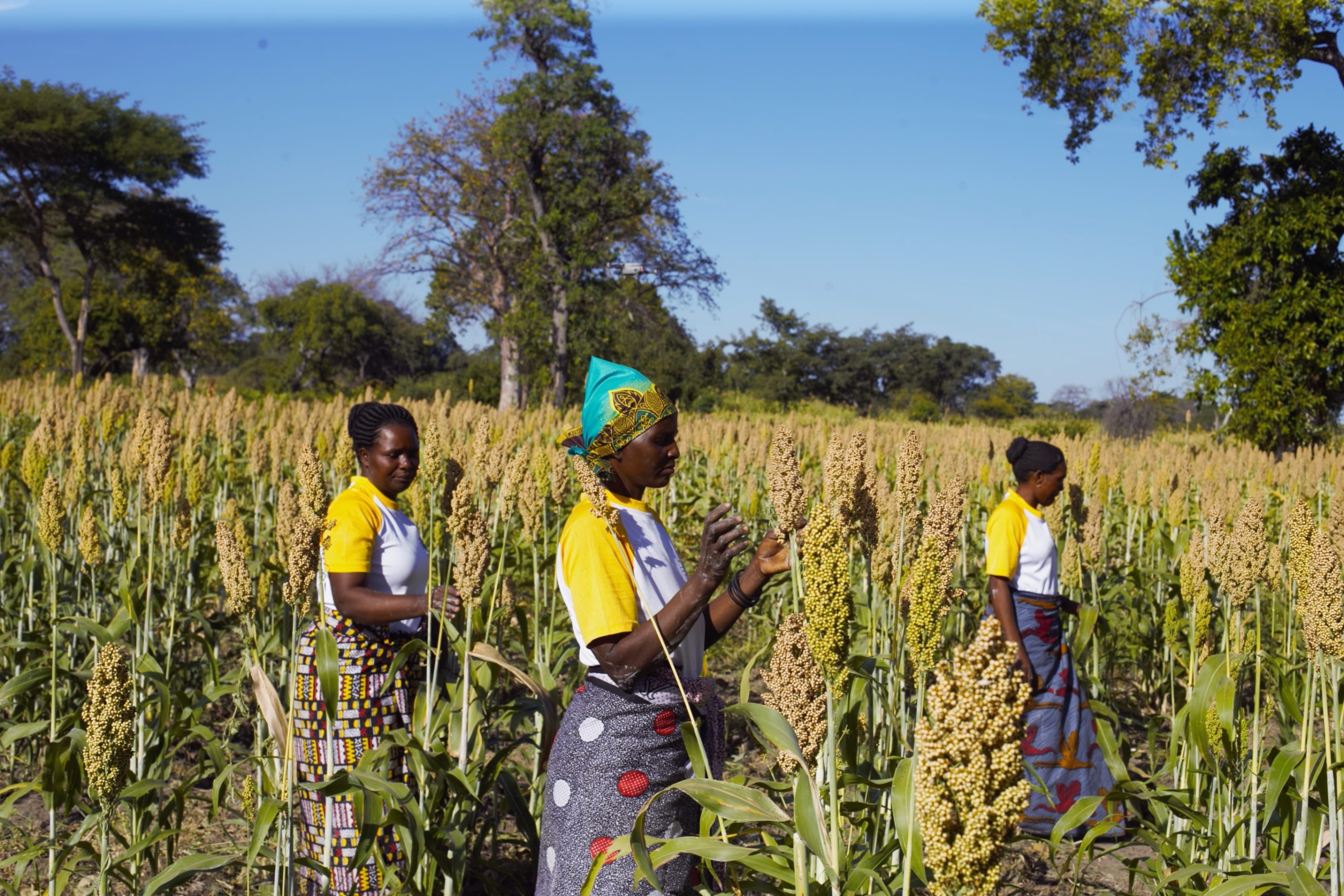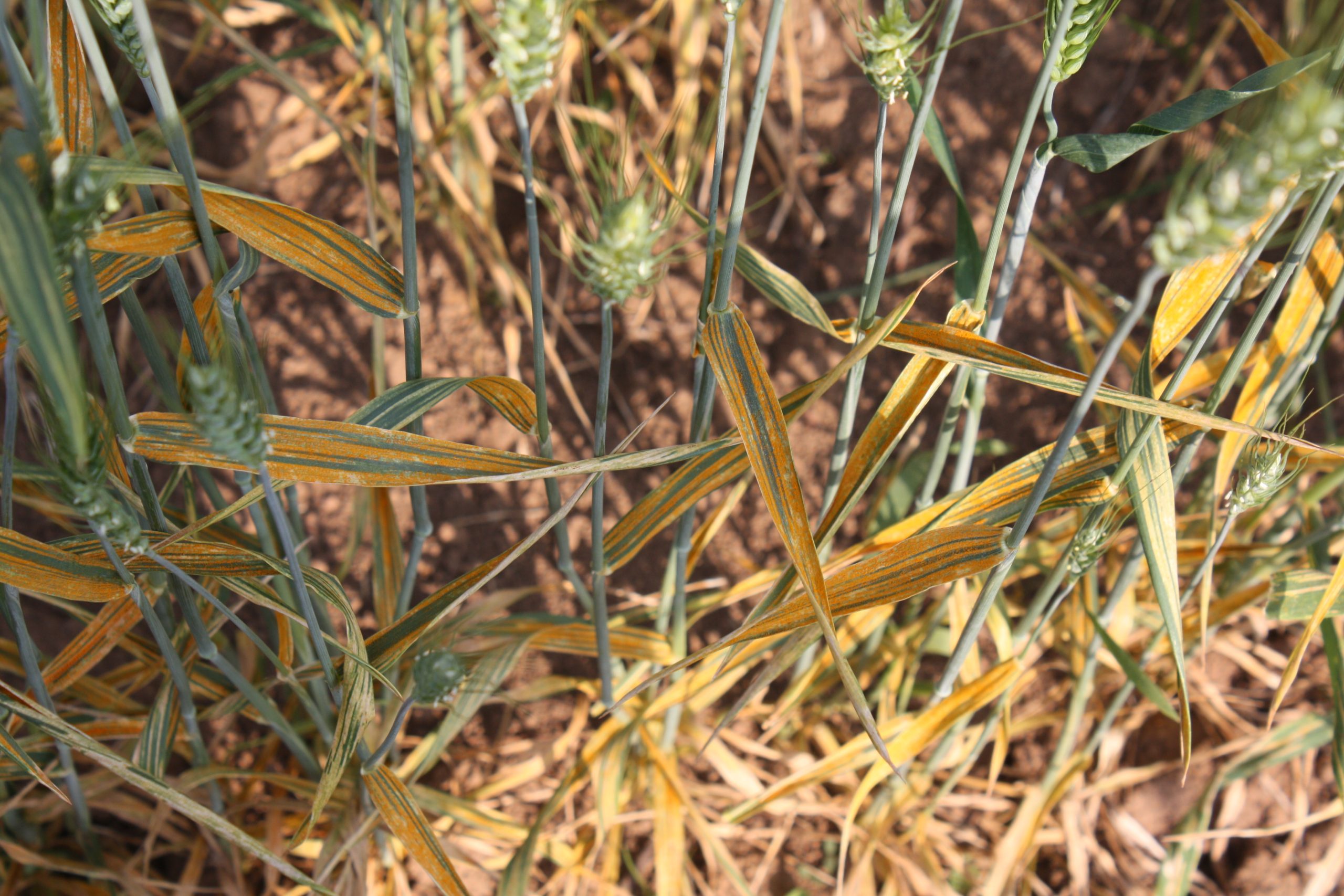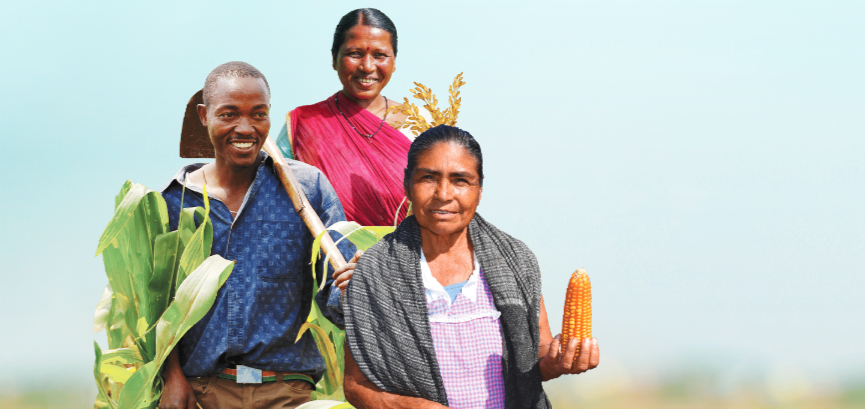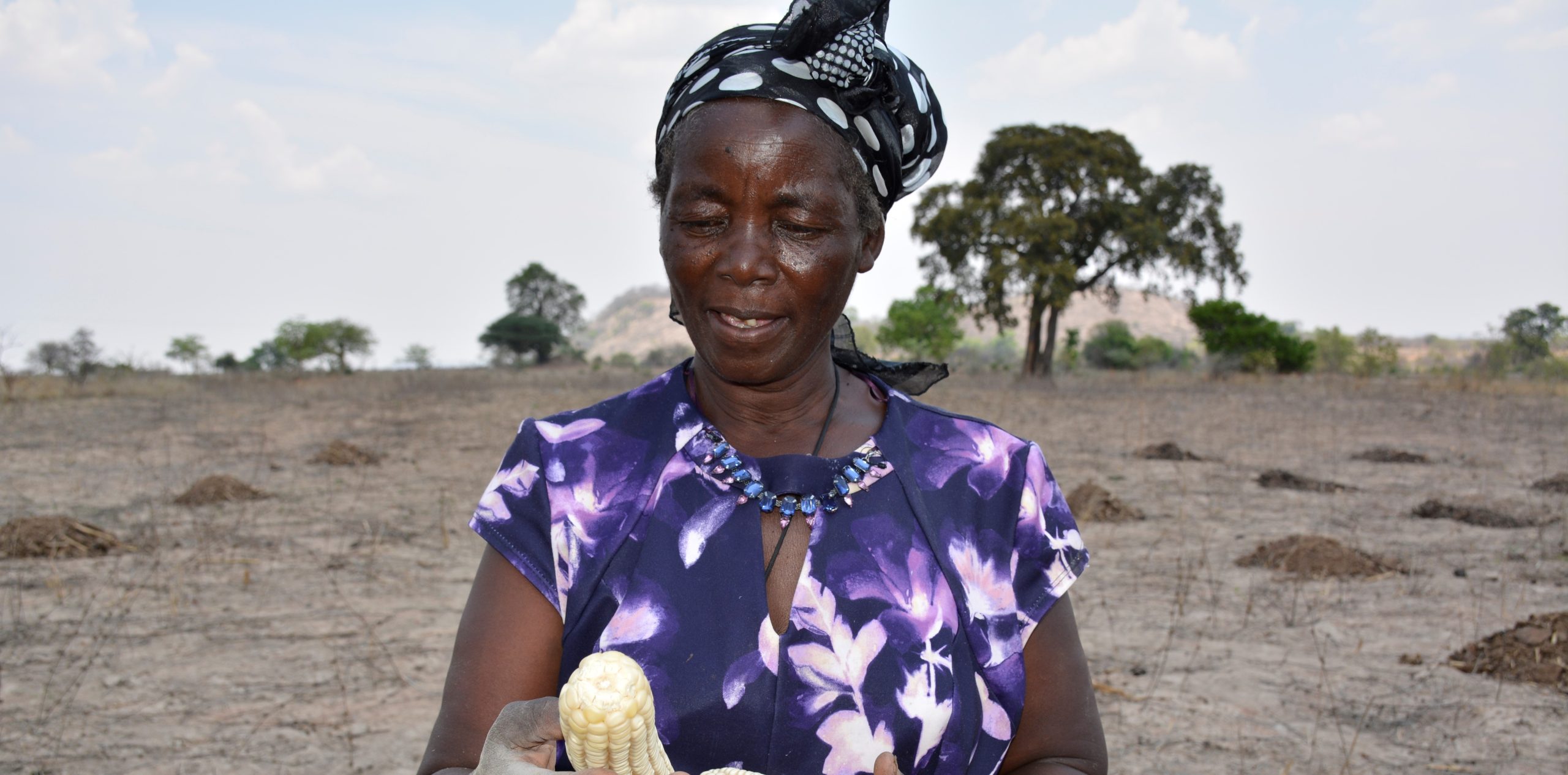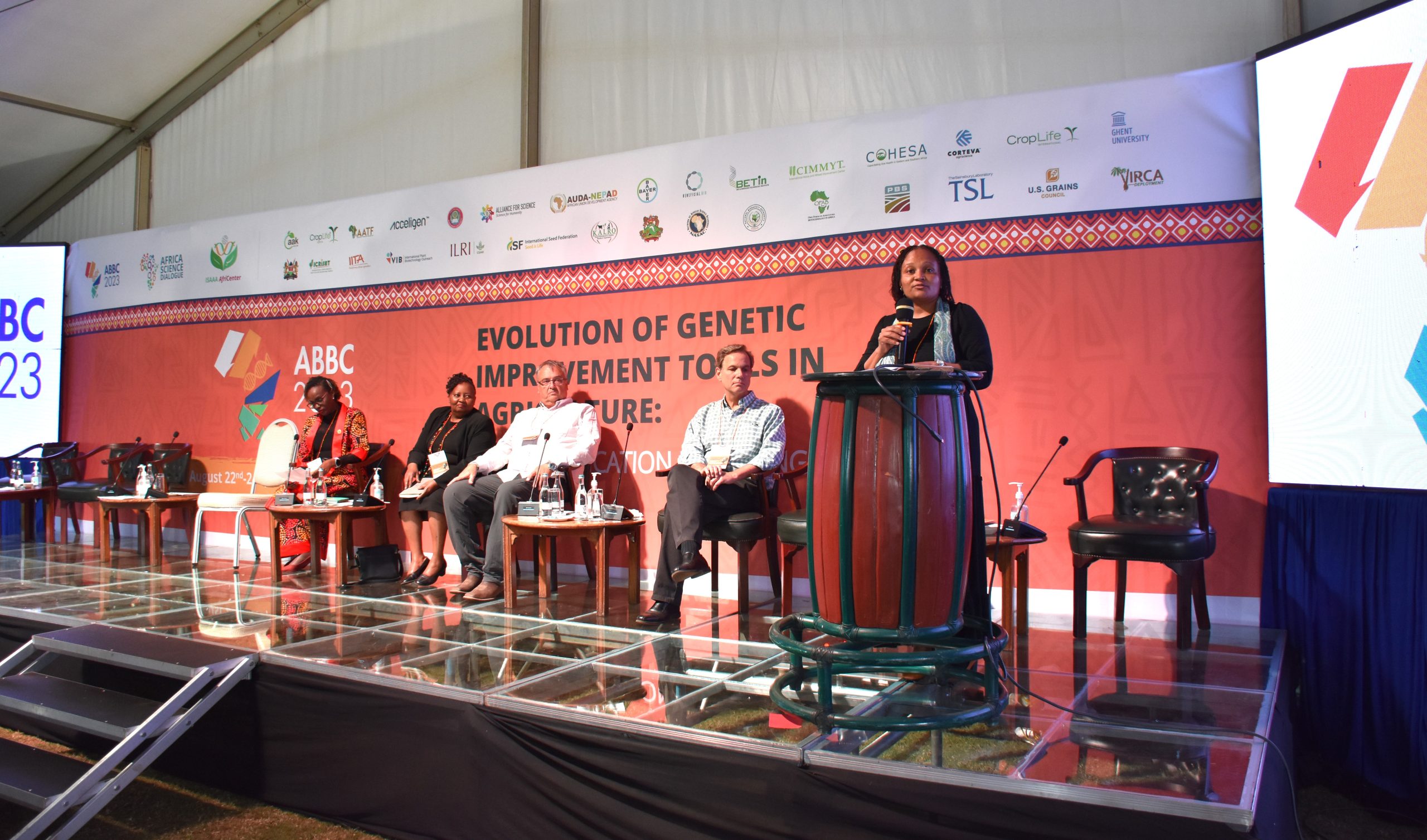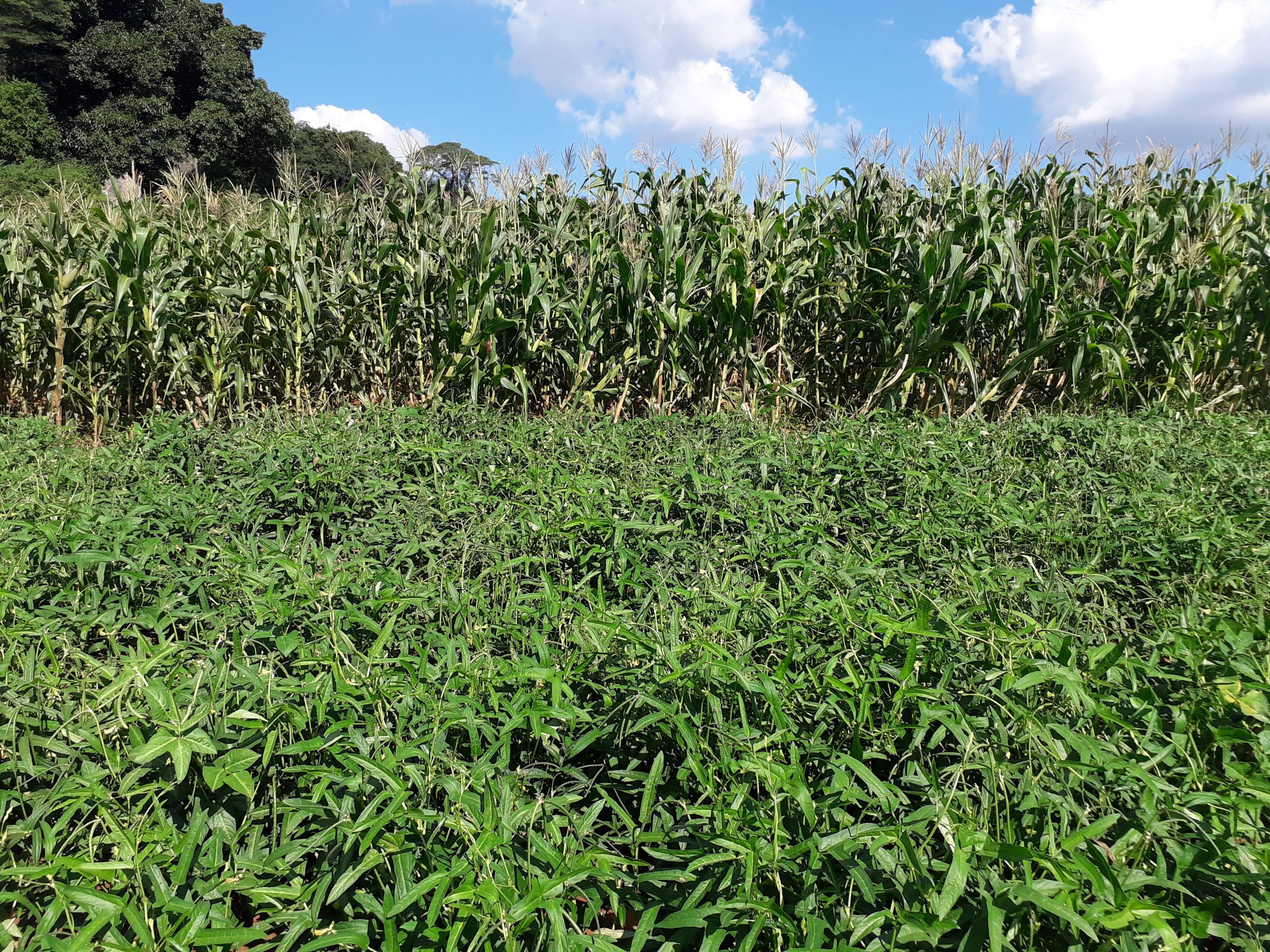Africa
CIMMYT’s work in Africa helps farmers access new maize and wheat systems-based technologies, information and markets, raising incomes and enhancing crop resilience to drought and climate change. CIMMYT sets priorities in consultation with ministries of agriculture, seed companies, farming communities and other stakeholders in the maize and wheat value chains. Our activities in Africa are wide ranging and include: breeding maize for drought tolerance and low-fertility soils, and for resistance to insect pests, foliar diseases and parasitic weeds; sustainably intensifying production in maize- and wheat-based systems; and investigating opportunities to reduce micronutrient and protein malnutrition among women and young children.
Empowering local mechanics for sustainable machinery maintenance
 Capacity development
Capacity development
Training workshop for Zimbabwean mechanics guarantees efficient machinery service under USAID-funded Mechanization Activity.
Integrating gender into crop breeding
 Gender equality, youth and social inclusion
Gender equality, youth and social inclusion
Innovative approaches to incorporating gender considerations into Seed Production Technology for Africa.
EU-funded project refurbishes Gwanda veterinary lab, boosting livestock disease control
 Environmental health and biodiversity
Environmental health and biodiversity
Source: CITE (3 Nov 2023)
CIMMYT collaborates to enhance disease control for livestock, assisting smallholder farmers.
Sustainable Intensification of Smallholder Farming Systems in Zambia (SIFAZ)
 Climate adaptation and mitigation
Climate adaptation and mitigation
New partnership announced to protect Gorongosa National Park in Mozambique by improving agricultural livelihoods and crop systems
 Environmental health and biodiversity
Environmental health and biodiversity
GRP and CIMMYT signed up cooperation framework at Borlaug Dialogue organized by the World Food Prize Foundation.
Investment in Wheat Pathogen Surveillance
 Climate adaptation and mitigation
Climate adaptation and mitigation
Source: Medium (30 Oct 2023)
Sainsbury Lab, John Innes Centre and 21 institutes, led by CIMMYT, join forces to monitor plant pathogens and improve wheat productivity in East Africa and South Asia.
In Ethiopia, regional and local representatives endorse national framework on climate services
 Capacity development
Capacity development
Ethiopian Meteorological Institute in partnership with CIMMYT organized a workshop to scale climate-smart agriculture and climate information services for the benefit of millions of small-scale farmers in Ethiopia.
Sorghum seed sales profit and empower rural women in Tanzania
 Gender equality, youth and social inclusion
Gender equality, youth and social inclusion
In a remote rural area of Tanzania, a group of women farmers has defied the odds and found prosperity through the cultivation of certified sorghum seeds.
Bringing mechanization to farmers’ doorsteps
 Innovations
Innovations
A mechanization project promotes the uptake of scale-appropriate machinery for smallholder farmers in rural Zimbabwe.
CIMMYT makes progress on some of the world’s top problems: 2022 Annual Report, “Harvesting Success”
 Capacity development
Capacity development
CIMMYT presents its 2022 Annual Report.
Empowering women smallholder farmers in Africa with climate-resilient and nutritious maize varieties
 Gender equality, youth and social inclusion
Gender equality, youth and social inclusion
CIMMYT-NARES regional maize breeding networks empower farmers, especially women, to ensure food security in the face of climate change.
Bridging the communication gap in genetic improvement tools in agriculture
 Innovations
Innovations
Effective communication can shape societal views on the importance of robust breeding technologies and is critical to advancing sustainable food systems.
In sub-Saharan Africa, mineral fertilization and agroecology are not incompatible
 Environmental health and biodiversity
Environmental health and biodiversity
Should mineral fertilizer use be increased in sub-Saharan Africa? A team of African and European agronomists* provide a nuanced response to this question in an article published in Outlook on Agriculture. Their analysis is based on a review of the existing scientific literature and on years of field experience in sub-Saharan Africa.
